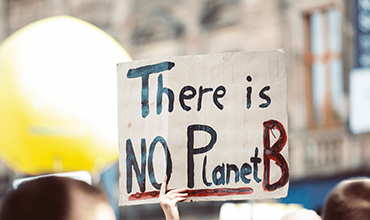
The COP28 Presidency has recognized the sense of urgency, purpose, and realism – in the climate community at large, and from the next summit hosts (CPD 2023a). Dr Jaber has also highlighted the role of the UAE, in building bridges to advance international efforts that will support the Global South and countries that are most vulnerable. In a speech at the Atlantic Council Global Energy Forum, Dr Al Jaber outlined the UAE’s four priority areas for COP28, as well as its ambition to elevate the global community’s collective action. These four priority areas include: (i) Mitigation; (ii) Adaptation; (iii) Finance; and (iv) Loss and Damage (CPD 2023b).
According to UNFCCC, apart from GST, COP28 will also bring home crucial work on long-awaited deliverables as well - achieving a global goal on adaptation (GGA), hammering out the details of the loss and damage finance facility, driving towards a global goal on finance, accelerating both an energy and a just transition, and closing the massive emissions gap and work in many other areas (UNFCCC 2023).
COP27 will be remembered for setting up funding arrangement to address loss and damage. COP28 needs to discuss the scale and sources of funds for this purpose and outline the shape and nature of the arrangement. The funding arrangements for loss and damage could open a new debate on who is particularly vulnerable to climate change - would it be people or countries or ecosystems. A paradigm shift from being country-centric to people-centric and nature-centric is needed. Loss and damage funding mechanisms need to take care of the most vulnerable communities and ecosystems.
GGA would also have to be specific, measurable, achievable, and realistic and time bound. An important outcome of COP28 in the context of GGA would be if the global community commits to securing basic universal enablers of adaptation at all scales, for example, universal access to climate information. Metrics on adaptation finance; adaptation policies and frameworks; as well as reduced vulnerabilities are crucial to GGA (TERI 2022).
On the outcomes on critical issues such as New Collective Quantified Goal (NCQG) on climate finance, the Global Goal on Adaptation, the processes will continue till COP28 where this decision would need to have a concrete outcome in place. The report prepared by the Standing Finance Committee under the UNFCCC estimated that developing nations would need USD 5.8-5.9 trillion every year till 2030, to achieve less than half of their climate goals under the Paris Agreement. Even the inadequate goal of USD 100 billion remains unfulfilled with the latest estimates from OECD being USD 83.3 billion in 2020.
Both GGA and Loss and Damage Funding are welcome initiatives but have missed the bus for the first GST. Thus, the first global stocktake will largely be around mitigation and the temperature goals of the Paris Agreement. From the Global South perspective adaptation is extremely crucial along with bridging the gap between adaptation and mitigation.
The principle of equity is key and must be recognized in each sphere of action especially the GST. Climate finance and transparency should be the heart and soul of GST which must be reported in terms of disaggregated components of mitigation, adaptation, and loss & damage. The Global Stocktake should focus on honest discussion about the required system change. Both finance and transparency are essential, along with paradigm shifts needed for systematic changes and large-scale transitions. The Global Stocktake assessments need to be inclusive by being people centric and nature centric.
[1] What can be the envisaged outcome on the Global Goal on Adaptation at COP28?
[2] What can be the expected outcome on New Collective Quantified Goal at COP28 especially in terms of bridging the gap between finance for adaptation and mitigation?
[3] How will equity and climate justice be factored in the GST process?
[4] What can be the envisaged outcome on Loss and Damage Funding at COP28?
[5] For vulnerability, a paradigm shift from being country-centric to people-centric and nature-centric is needed. How can multilateralism and UNFCCC play a role for such a shift to take place?
The session will involve a chaired/ moderated discussion, which will start with brief remarks by the chair/ moderator followed by brief addresses/ statements by the speakers. After the addresses, depending on the remaining time, the chair will pose 1–2 questions to the esteemed speakers based on issues emerging from the addresses. The chair/ moderator will then sum up the discussions. The total length of the panel discussion is 90 minutes. The addresses should be in the form of verbal interventions only. The WSDS Secretariat requests speakers to avoid using power point presentations. Strict time management is to be followed, for which there will be a timer/ buzzer.
Centre for Sustainable
Development Research and Leadership,
The Energy & Resources Institute
6C, Darbari Seth Block, India Habitat Centre, Lodhi Road
New Delhi - 110 003 India
wsds@teri.res.in
+91 11 24682100 (Ext. : 2464)